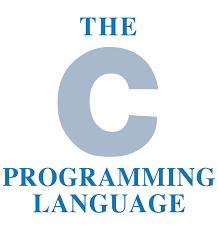C Programming language:
The C programming language is a versatile and influential programming language that has been a foundational tool in the development of software for decades. Created by Dennis Ritchie at Bell Labs in the early 1970s, C is renowned for its efficiency, portability, and the influence it has had on numerous other programming languages.
 |
| C Programming language |
Key Features and Concepts of C:
1. Procedural Language:
C is a procedural programming language, emphasizing functions and procedures as the primary building blocks of a program. It follows a top-down approach to problem-solving.
2. Portability:
One of C's strengths is its portability. C programs can be easily adapted and run on various hardware platforms with minimal modification, making it an ideal choice for system-level programming.
3. Structured Programming:
C supports structured programming principles, including the use of functions, modules, and control structures like loops and conditionals. This contributes to code readability, modularity, and maintainability.
4. Low-Level Features:
C provides low-level features, allowing direct manipulation of hardware and memory. This capability makes it suitable for developing operating systems, embedded systems, and other performance-critical applications.
5. Pointers and Memory Management:
C introduces the concept of pointers, enabling direct manipulation of memory addresses. This feature is powerful but requires careful management to prevent issues like memory leaks and segmentation faults.
6. Efficiency:
C is known for its efficiency in terms of execution speed and memory usage. It allows fine-grained control over system resources, making it suitable for developing applications with high performance requirements.
7. Standard Library:
C comes with a standard library that provides a set of pre-built functions covering various tasks, such as input/output operations, string manipulation, and mathematical functions. This standardization enhances code portability.
8. Community and Ecosystem:
The C programming language has a robust and active community of developers. The wealth of resources, including documentation, forums, and open-source libraries, contributes to the ongoing relevance and evolution of C.
Influences on Other Languages:
1. C++:
C++, developed as an extension of C, incorporates object-oriented programming features. It maintains compatibility with C syntax, allowing C programs to be easily integrated into C++.
2. C#:
C# (C Sharp), developed by Microsoft, shares syntactical similarities with C and C++. It is part of the .NET framework and is commonly used for Windows application development.
3. Objective-C:
Objective-C, the primary programming language for macOS and iOS development, is an extension of C with Smalltalk-style object-oriented programming features.
4. Java:
While Java has distinct differences, its syntax and some design principles were influenced by C and C++. Java's platform independence was inspired by C's portability.
5. Python:
Python, a high-level language known for its readability and simplicity, was influenced by C. The design of Python's syntax was influenced by the readability and simplicity of C.
C remains a fundamental language in computer science education, and its principles continue to influence the design and development of new programming languages. Despite the emergence of newer languages, C's efficiency, flexibility, and historical significance ensure its continued relevance in various domains, particularly in systems programming and embedded systems.